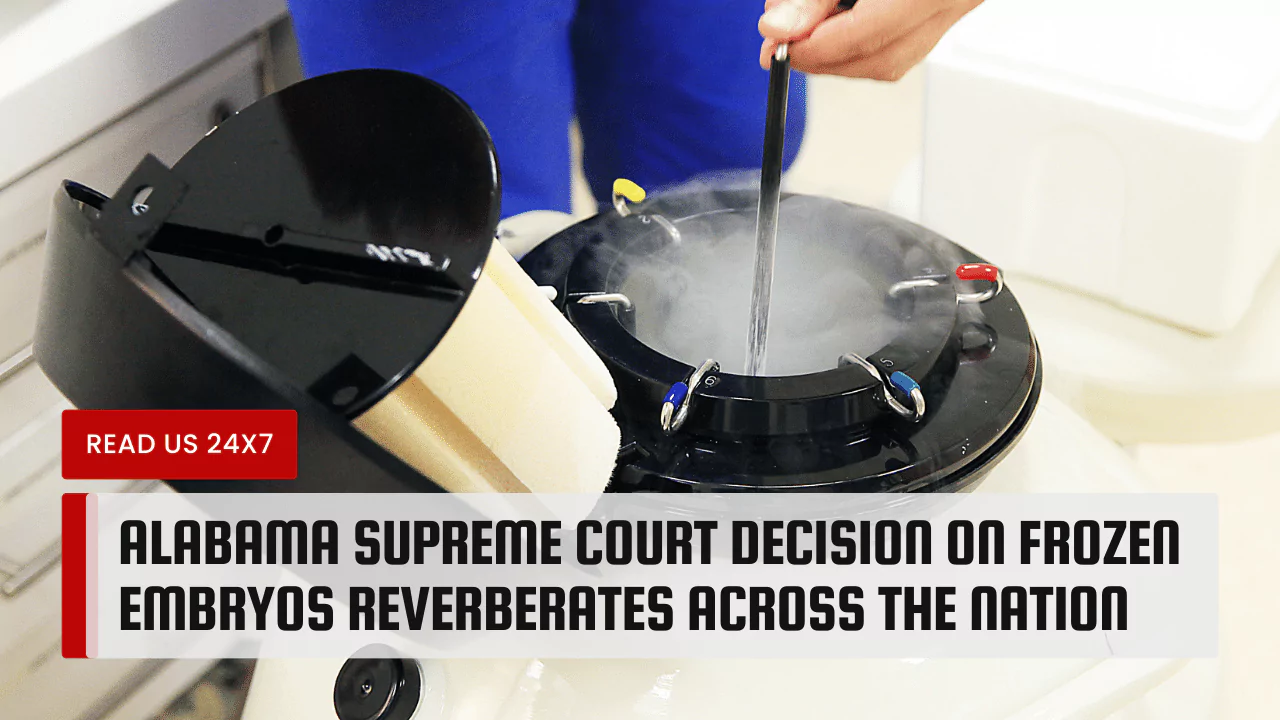Alabama’s Supreme Court recently delivered a groundbreaking ruling, declaring frozen embryos as people, a decision with profound implications for reproductive rights nationwide. This unprecedented move marks the first time a court has granted rights and protections to embryos so early after conception, setting a precedent that extends beyond the borders of Alabama.
Overview of the Alabama Supreme Court’s Ruling
In its ruling, the Alabama Supreme Court affirmed that frozen embryos are to be recognized as children under the Alabama Wrongful Death of a Minor Act, irrespective of whether they have been implanted in a uterus. Justice Jay Mitchell, writing for the majority, emphasized that unborn children are considered ‘children’ under the law, regardless of their developmental stage or physical location.
This decision challenges conventional practices in reproductive medicine, particularly in vitro fertilization (IVF), which could face significant disruptions. The ruling reframes the legal landscape, prompting questions about the accessibility and legality of IVF procedures in Alabama and potentially beyond.
Response to the Ruling
The repercussions of the ruling are already being felt, with facilities like the University of Alabama at Birmingham (UAB) health system halting all IVF treatments due to concerns about legal liability. The decision has sent shockwaves through the medical community, raising fears of criminal prosecution for fertility doctors and limiting access to modern fertility care for Alabamians.
Furthermore, the ruling has invigorated the “fetal personhood” movement, which advocates for granting legal rights and protections to embryos from the moment of conception. This ideological shift aligns with conservative values and represents a significant departure from established reproductive rights frameworks.
Efforts to replicate Alabama’s standard are underway in other states, with organizations like Liberty Counsel pushing for similar rulings to protect the rights of the unborn. The decision’s potential to influence reproductive legislation across the country underscores its far-reaching implications.
Understanding the Controversy
The Alabama Supreme Court’s decision has ignited a contentious debate surrounding reproductive rights and the status of embryos. Advocates argue that recognizing embryos as people reinforces the sanctity of life and provides legal safeguards against practices like abortion and embryo disposal.
Conversely, critics warn that granting personhood to embryos could erode women’s reproductive autonomy and impede access to essential reproductive healthcare services. They argue that such rulings prioritize the rights of embryos over those of women, jeopardizing established legal protections like Roe v. Wade.
The ruling’s broader implications for reproductive rights are significant, with the potential to reshape the legal landscape surrounding IVF, abortion, and fertility care. As states grapple with the complexities of balancing reproductive freedoms with the protection of embryonic life, the debate over Alabama’s decision continues to unfold.
In conclusion, the Alabama Supreme Court’s ruling on frozen embryos represents a pivotal moment in the ongoing struggle over reproductive rights in the United States. With its reverberations felt across the nation, the decision underscores the profound implications of legal determinations on the status of human embryos and the future of reproductive medicine.


